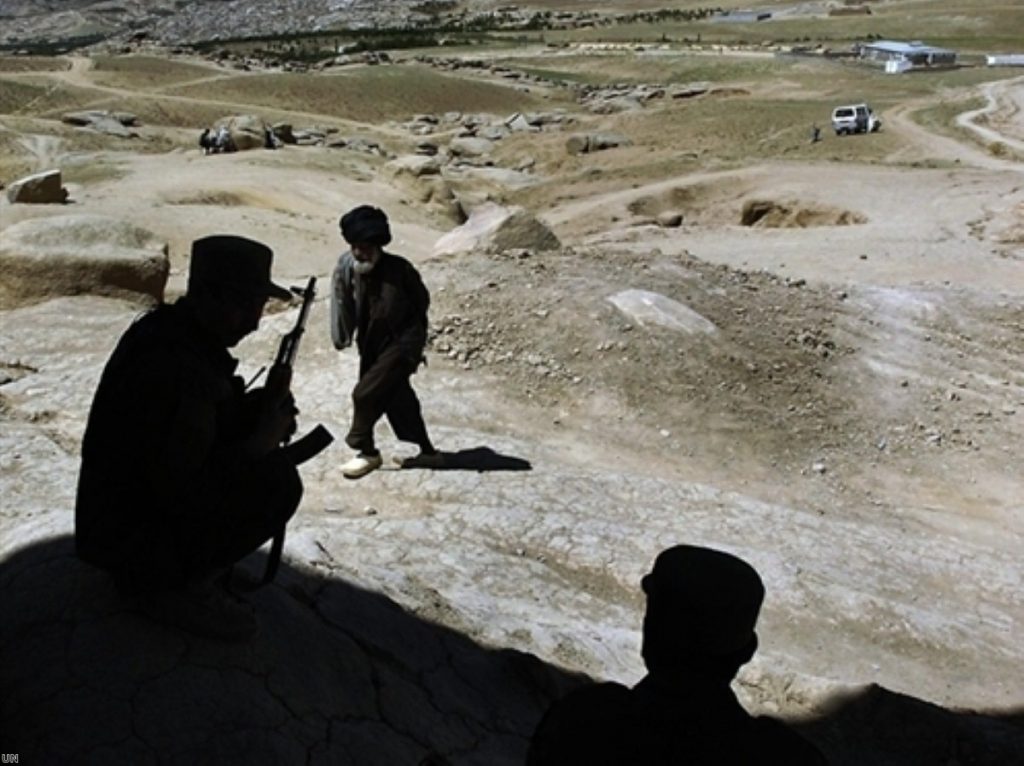To the wolves? MPs nervy over Afghanistan retreat
Afghanistan's fledgling security forces will struggle to prevent the country falling into the grips of a renewed insurgency after 2014, MPs have warned.
Backbenchers on the Commons' defence committee painted a bleak picture of Afghanistan's future after international forces finally hand over full control to the Afghan National Security Force in 2015.
Their report quoted Tony Blair promising: "The conflict will not be the end, we will not walk away as the outside world has done so many times before."
But, as British, American and other international soldiers prepare to end combat roles in just two years' time, MPs drew attention to the serious problems faced by the Afghan forces they have been training up to take over the job of combating the Taliban.


Their report warns of medical and equipment shortages, including a lack of attack helicopters which will not be made good until at least 2017.
MPs' main concern is about the personnel, however. Afghan security forces are expected to forget their training almost immediately. They will fragment more quickly – a big worry as attrition rates are already twice what they should be. The ethnic mix of the security forces is not as balanced as it should be, undermining its effectiveness as a national body.
Cuts in size based on the insurgency diminishing also worried MPs, given the strong possibility the Taliban will redouble its efforts against Hamid Karzai's government after the departure of international forces. The insurgency has been driven out to the desert and outlying areas, where many families are being driven after being dispossessed.
"The fact is that the UK will have limited influence and, indeed, it is for the Afghan people themselves to determine for their future," MPs concluded.
"The best the UK can do is to withdraw in good order and engage with external partners to improve the chances of Afghanistan going forward."
One senior Conservative former minister told politics.co.uk the widespread view in government was that the war against the Taliban had been lost – and that the only option was therefore to exit the country with as much dignity as possible.
MPs presented a detailed list which they would use to assess whether the attempt to provide Kabul with a "peaceful and functioning Afghanistan" is successful.
This included open and free elections, a strong judicial system, at least the start of a process for a "concluded peace settlement" with the Taliban and a reduction in corruption levels.
Question-marks are also emerging about the extent of the government's forward planning for its involvement in the country from 2015 onwards.
"We have received very little information from the MoD and the FCO as to how they plan to be involved in Afghanistan beyond 2014," MPs complained.
"Given there are less than two years before the end of 2014, the government should inform us how it sees its future role in Afghanistan."
Defence secretary Philip Hammond, responding to the report, pointed to the £70 million commitment to the international fund helping sustain the Afghan security forces after 2014.
"The UK is dedicated to helping the Afghan government make progress towards a sustainable political settlement and a stable regional environment, and to help the Afghan people build a viable Afghan state," he said.
"We will continue to support governance and development in Afghanistan through the next decade – with £178 million per year of development aid agreed until 2017 – to ensure that the progress made will not be lost.”
Over the past six years, 14,728 Afghan civilians have lost their lives in the armed conflict.









